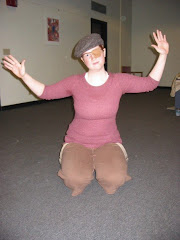Philosophical fragments...
Catalyzing this stream of thought, this book I've been reading at one point discusses Einstein's philosophy of life, which the author describes as: "we can easily become imprisoned in and blinded by our own thoughts and feelings because they are concerned solely with the particulars of our lives and our desires as separate beings... we all come into and go out of this world as passing gatherings of structured energy... as eddies and waves, our lives do have a certain uniqueness, but they are also the stuff of a larger whole expressing itself in ways that ultimately surpass our comprehension." If you add God into that equation, then all of creation becomes one large and dynamic force life evolving out of God's imagination. The matter and energy that make up Steve Hammond says he believes in afterlife because God is a God of life. But I don't think there needs to be an afterlife for me for God to still be God of life. The story of creation is not about me. It's about God. I'm only a tiny part of that story. And life endures. Creation endures. Global warming could ravage the earth and change what life exists on it, but I believe life would still remain. It's plucky that way. And the energy and matter that make up my body and my life will always be a part of that life. I in my particular uniqueness (is that redundant) will cease to exist, but the matter and energy that make up my life will not. In that regard, death is not really a loss of life, but a change of life from one form to another.
So what if that is all there is to eternal life? Right at this moment, I think I would be okay with that. As D. Kamitsuka pointed out once, we will all still be remembered by God, and in that way our particular existence will never be lost. On the other hand, I'm in pretty good shape right now. I'm happy and healthy, with a roof over my head and adequate food. I can afford to say that I would be content if this life is all I have as myself. I don't know if it's enough for me when I am suffering. Who says the particular, self-focused viewpoint afforded by suffering is a less accurate lens for understanding creation than the more meditative, emotionally-neutral broader view. I'm not sure if the view of life as one unified and dynamic force gives adequate due to the power of evil in the world. For my own justice work, I need to believe that evil is real and God opposes it. What would evil even be in this schema? Where is the justice? I don't know if I could in good conscience tell a parent who had lost a child to try to look beyond their pain and at the bigger picture (which, evidently, is what Einstein did). The nice thing about afterlife is that it offers justice of the true and divine kind, done by God who knows everything about everyone, rather than the imperfect and often narrow-minded justice that humans can mete out.
The view of life as unified is much easier for my sense of reason to wrap itself around than the idea of eternal life and divine judgment. It goes much more neatly with what I perceive of myself and of the world. But who really cares about reasonableness? But even while reason is important for my evaluation of theology, I also agree with Kierkegaard that reason cannot fully tell us about God and the true nature of things, if it can tell us anything at all. Because of that, a worldview that's internally cohesive, or one which causes no cognitive dissonance at all, may not necessarily be the best one.
At this point in my reflections, I have not yet come to any kind of conclusion about what I believe is the most adequate way to view death and afterlife. Between my studies about conceptualizing life after death as bodily resurrection, and my new thoughts (at least, new to me) about no life after death, I am filled with an ever-deepening sense of awe and reverence for life. There are so many beautiful ways to understand it, maybe it's better that no one has reached a definitive conclusion. Knowing that is deeply joyful and God-ful for me. In any case, I am dead set (originally, no pun intended) against having my body pumped full of chemicals and put inside a vault where I will turn into jelly instead of rotting. As soon as I'm dead, please stick me in a pine box and dump me in the ground in the nearest state where that's still legal. Soul or no soul, this body is going to compost.




No comments:
Post a Comment